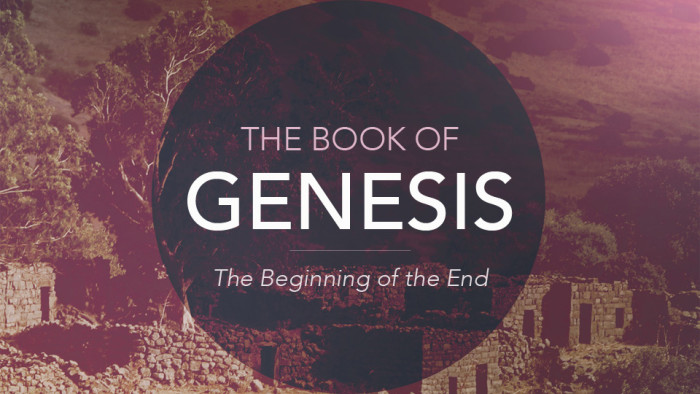
God Protects His Promise
You’ll notice that Abraham “journeyed” to the land of Gerar and “said of Sarah his wife, “She is my sister.” And Abimelech king of Gerar sent and took Sarah.” To understand the threat this action brings to the promise we must remember what happened in chapter 18. There God appeared to Abraham (Sarah was eavesdropping on the conversation) and said in 18:10, “I will surely return about this time next year and Sarah shall have a son.” Thus, presumably—given the timeline—here in chapter 20 Sarah has just conceived, probably isn’t even showing a baby, and out of fear for his life Abraham hands her over to Abimelech saying, “She’s my sister.” Do you see the danger to the promise? Abraham and Sarah haven’t been able to have a child for decades, she’s suddenly found to be pregnant while living in Abimelech’s harem—to whom will everyone think the child belongs? Not Abraham. The promise stands on a perilous precipice all because Abraham willingly sacrificed his wife’s integrity for his own safety.
Yet here comes the God of protection, look at 20:3, “But God came to Abimelech in a dream by night and said to him, ‘Behold, you are a dead man because of the woman whom you have taken, for she is a man’s wife.’” Imagine hearing something like that tonight in the middle of your sleep, what terror must have filled this pagan king! Notice 20:4 to see Abimelech’s response, “Now Abimelech had not approached her (this chapter repeatedly proves Abimelech and Sarah had never shared a bed). So he said, “Lord, will you kill an innocent people? Did he not himself say to me, ‘She is my sister’? . . . In the integrity of my heart and the innocence of my hands I have done this.” To which God says in 20:6, “Yes, I know that you have done this in the integrity of your heart, and it was I who kept you from sinning against me. Therefore I did not let you touch her.” Do you have a place in your understanding of God that says He sovereignly keeps people from sinning? You see Abimelech says, “Lord, I haven’t done anything wrong!” To which God says, “I know, because I wouldn’t let you.” It’s an amazing declaration isn’t it? God will protect even unbelievers from sinning in order to keep His promise. His promise is certain for He is a shield of protection.
God proceeds in 20:7 to command Abimelech to return Sarah lest he die. The next morning Abimelech obeys and understandably challenges Abraham on his deceit. Look at Abraham’s excuse in 20:11, “I thought, ‘There is no fear of God at all in this place, and they will kill me because of my wife.’” In fact, Abimelech proves to be a better model than Abraham in this passage of what it means to fear God. “Besides,” Abraham goes on to say, “Sarah really is my sister, she’s the daughter of my father from a different mother. Plus, when God sent me from my home—notice 20:13, “I said to her, ‘This is the kindness you must do me: at every place to which we come, say of me, ‘He is my brother.’” Abraham and Sarah have thus been up to this ruse for decades, there’s no telling how many times it happened, how often the promise was endangered by his lack of faith.
Have you considered before what a perplexing character Abraham is? I mean, Abraham took God at his word and left his home with no knowledge of where he was going. Lord willing, next week we will see him in faith obey God’s command to sacrifice His son Isaac. Yet, interspersed we have these stories in chapter 12 and 20 of him potentially forfeiting the promise out of fear. Here’s the vital lesson for us: great faith is often mingled with great failure. We see it in Abraham and every major figure of faith ever since. In Abraham we see that it can be easy to have faith in the great things, but fail in the little things. And what’s amazing to me is that God called out and covenanted with Abraham knowing about his future failures. What encouragement this is to you who are called by God! You will fail in the future, maybe even greatly, but if He’s called you belong to Him with all your great faith and great failures.
You’ll notice if you scan through 20:14-16 that Abimelech returns Sarah to Abraham saying they can live wherever they please in his land and give them a gift of one thousand pieces of silver. Then in 20:17 Abraham intercedes for Abimelech and his family so they could bear children for notice 20:18, “For the Lord had closed all the wombs of the house of Abimelech because of Sarah, Abraham’s wife.” The curse of barrenness had fallen on Abimelech’s family because of Abraham’s fear, which announces a terrible irony. Do you see it? Abraham was supposed to bring blessing to the nations, but because of fear he brought a curse to Abimelech’s nation. Sinful fear rarely, if ever, only affects the individual who falls into unbelief—the consequences regularly reach farther.
God is powerful to protect his promise, a promise we now finally see fulfilled.
The Promise Fulfilled
Several years ago Emily and I went to watch a movie that was the final installment of a vaunted series. All along the story was building to a climactic encounter you knew would come in the last film. When the scene came I was on the edge of my seat eager to see the great event all sorted. Yet, the climax came and went rather uneventfully and I thus left the theater that afternoon quite disappointed with a climax that was altogether anticlimactic.
You could be forgiven for feeling something similar as we turn the page to chapter 21. Since chapter 12 the story has been building up to the moment when Sarah has a son, but when the birth comes Moses retells it quite anticlimactically. Look at 21:1-2, “The Lord visited Sarah as he had said, and the Lord did to Sarah as he had promised. And Sarah conceived and bore Abraham a son in his old age at the time of which God had spoken to him.” So hum-drum, isn’t it? “In time Sarah bore Abraham a son, just like God said she would.” Abraham circumcised him and Sarah laughed in joy. That’s about it in 21:1-7. Yet, is the ordinariness really surprising? For God is always faithful to His word of promise. Without much apparent effort at all we see God continually capable of bringing about His plans and purposes. Why then should Moses retell the story with great pomp and celebration? What he emphasizes three times in two verses is how Isaac’s birth happen as God said it would. You can stake your life on God’s word of promise.
If you are not a Christian, let me tell you tonight that you can stake your life on God’s promise. He told Abraham, “I will give you a son,” and Abraham received a son. He told us through His word that someone from Abraham’s family would come and bless the nations by crushing the Serpent’s head. That promise had come true in the life, death, and resurrection of Jesus Christ. He now offers to you the promise of forgiveness of sin an eternal life that He secured, that He protects. What promise of protection do you cling to? The promise of riches, success, or earthly relationships? Or maybe you cling to your own acts of righteousness or obedience? Friend, nothing but turning from your sin and trusting in Jesus for salvation can protect your soul from the death you deserve. He holds out the promise of life to you tonight, will you take it by faith?
Our God is the Lord of protection, He protects His promise.
Life in the Covenant Family
About two months ago we moved to a new house, to be closer to church and one in which we can live, Lord willing, for years and years. It took many weeks to get used to traveling different routes to and from our ordinary places of community; many weeks to get used to walking around a new home in the dark; many weeks to discern how to best tend to a new yard; many weeks to find new ways to play old games. All in all, it took many weeks to get used to life in the new home.
We’ve been in Genesis for several weeks now and this week I thought, “I feel like I’m getting used to how Genesis uniquely talks about life in the covenant family of God.” And so as we begin to close I want to think about ordinary life in this covenant family, exemplified by Abraham, under two statements we keep seeing and have even seen tonight.
First as we observe life in the covenant family we see . . .
The danger of fear in the present. Have you ever considered how fear comes from unbelief and unbelief is anchored to the present? Unbelief is fixated on present realities, and if it goes unchecked then fear runs rampant. This is what we see in Abraham’s failures. His failures come at moments when he’s totally consumed with the present and can’t help but respond with fear. But there are moments in Abraham’s life of great faith, which leads us to the second observation on life in the covenant family . . .
The duty of faith in the future. If Abraham’s great failures are rooted in a preoccupation with the present, the instances of great faith are those moments when he clings to the future. Faith in the future pushes out fearful unbelief in the present. I wonder where fear is strong in your life. Could it be of present unbelief in God’s future promises? There is great danger in life consumed with the present with little thought given to the future. But when God’s people obediently live through faith in God’s future promises they have great spiritual power in the present. What promises are you living by? What promises of God might you need to remember this week as you fight to live by faith?
“Fear not,” God says, “for I am your shield.” May you be encouraged tonight that God always protects His promise and His people. Our God is the Lord of protection.
This post is adapted from my recent sermon, “Abimelech,” on Genesis 20-21.


